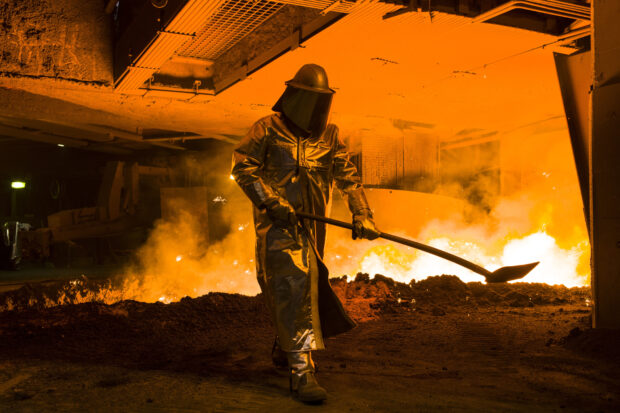Germany’s biggest industrial union seeks 7% pay raise for workers

An employee in protective clothing works at the furnace at the steel producer, Salzgitter AG, in Salzgitter, Germany, Thursday, March 22, 2018. (AP Photo/Markus Schreiber, File)
BERLIN — Germany’s biggest industrial union said Monday it would seek a 7 percent pay increase for millions of workers in negotiations starting later this year, arguing that companies including automakers and machinery manufacturers are in a position to afford it.
The IG Metall union’s leadership said it was recommending a hefty raise in demand for 3.9 million workers in view of “a persistently high price level.”
It said that companies have well-filled order books and that, even though prices are no longer accelerating as quickly as they were, one-time payments agreed in the last settlement have been eaten up by inflation.
In the last round of pay talks, IG Metall and employers agreed in late 2022 to raises totaling 8.5 percent over two years plus one-time payments totaling 3,000 euros (about $3,200) each, meant to cushion the effect of sky-high inflation.
Tax-free payments
The government, which wanted to address the impact of rising prices while preventing an inflationary spiral, was keen to promote such tax-free payments.
IG Metall called for a 7 percent raise and a one-year deal this time. It said it understands that some companies are in a volatile situation, but argued this doesn’t detract from the industry’s overall solidity and an improving economic outlook.
In Germany, wage deals are typically hammered out in negotiations between employers organizations and unions that cover a whole sector, and an agreement reached in one region is generally applied nationwide. IG Metall’s current agreement expires at the end of September.
READ: German inflation edges up, as ECB prepares for rate cut
Germany’s annual inflation rate stood at 2.4 percent in May, down from nearly 9 percent at the beginning of last year.
The country’s economy, Europe’s biggest, has been struggling to generate growth. Employers have argued that the economic situation doesn’t allow for large wage increases.